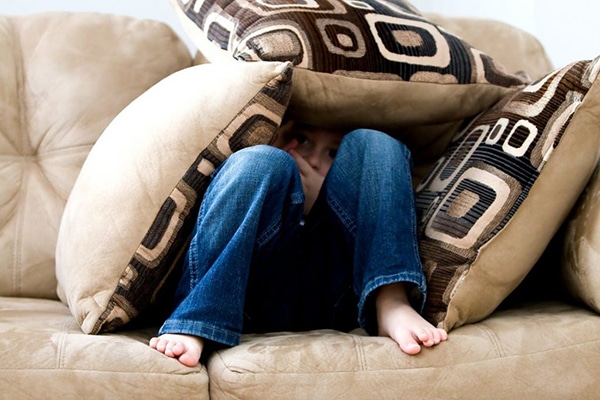Are you worried about your child? Are they experiencing ‘aggressive’ behavior whether in your care or other’s care. This behavior can be shown towards parents, family members, other children they are around, or potentially everyone. The truth is, this is so common in almost every family in the world. These behaviors are a very ‘normal’ part of development in all children. We are not born with the innate ability to self-regulate and cope with emotions. Below are some ideas that you can reference for help with your child’s perfectly “normal”, aggressive behavior.
Are you worried about your child? Are they experiencing ‘aggressive’ behavior whether in your care or other’s care. This behavior can be shown towards parents, family members, other children they are around, or potentially everyone. The truth is, this is so common in almost every family in the world. These behaviors are a very ‘normal’ part of development in all children. We are not born with the innate ability to self-regulate and cope with emotions. Below are some ideas that you can reference for help with your child’s perfectly “normal”, aggressive behavior.
- Try and distinguish when and where you see these behaviors the most. For some kids there are places or situations in which these behaviors are more prominent. For example if you notice that every time you go to the grocery store, your child’s behavior begins to change for the worse. Perhaps they are not listening, hitting, kicking, or throwing a temper tantrum. Perhaps, something at the store that could be a trigger. Maybe they are over stimulated from the bright florescent lighting or all of the sound input within the store. You could try letting your little one wear sunglasses in or wear headphones/ earplugs while in the store and see if you can notice a difference. For others, this may mean avoiding the store with their little ones all together if at all possible.
- Be sure that you respond appropriately with your child’s age. Many parents, including myself tend to struggle with an applicable response. There are many times that you get caught up in the heat of the moment and respond poorly to your children’s behavior. This could be because of embarrassment, sleep deprivation, or many other contributing factors, but studies have shown that children do not learn how to self-regulate and understand discipline until certain age marks. Below are some ideas on what to do with different age groups.
- Birth-12 months. Set limits with a firm (not angry) voice, and redirect your child’s attention. I often burst into a song or do a silly dance. Distraction works wonders!
- 12 months and older. When toddlers are aggressive that means they are overwhelmed and need help coming back down. This must happen before they can even attempt to comprehend what you are talking about. They are unable to ‘learn’ until they are calm. As a parent your child needs you to:
- Stay calm: Your child feeds off of you. The calmer you are the quicker they will calm down. Easier said than done, I know!
- Recognize what your child is feeling or trying to achieve. Talk to them and tell them you understand what their issue may be right now. “I am sorry that you want to play outside right now. But it is thundering outside, and it is not safe to play outside. I understand that you are mad and it is okay to be mad/angry, but please do not hit Mommy. Hitting hurts. We use gentle touches.
- Use gestures along with communication. While you are using your firm, non angry voice you can use sign language signals for ‘No’ or ‘Stop’. You may also hold your child’s arms down firmly to their side if they are hitting.
- Offer alternatives. Offer your child advice on other ways they may have meet their ‘goal’. If you feel the like you need to kick something why don’t you kick a ball instead of kicking a friend.
- Try a distraction. Offer your child something else that may give them the same emotional reaction or something that they will not expect. Point to something outside that will grab their attention or something they don’t get to play with all the time.
- Suggests ways to manage strong emotions. Have your child jump up and down, rip paper, run around the yard, squeeze a stress ball, throw sponges at the floor, hug themselves tight of squeeze their hands into fists while counting to 10. Place a hand on the front and the back of their chest and talk teach them to take deep breaths.
- Help your child take a break. Some kids will automatically remove themselves from the environment that they are upset in and go to their ‘safe, quiet’ place. This should not be seen as a punishment for your child, but a place to unwind and release their emotions and get back to even ground and to their ‘good place.’ Once they have calmed down be sure tell them what a good job they did calming down.
If you need any other ideas on ways to help deal with this and other parenting issues, you can visit www.zertothree.org

